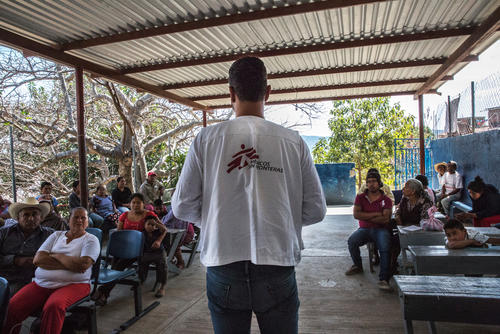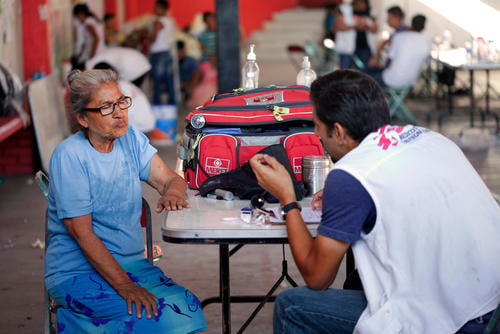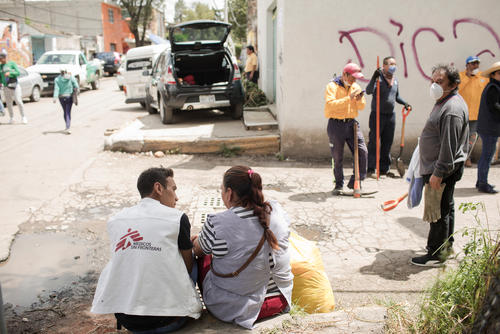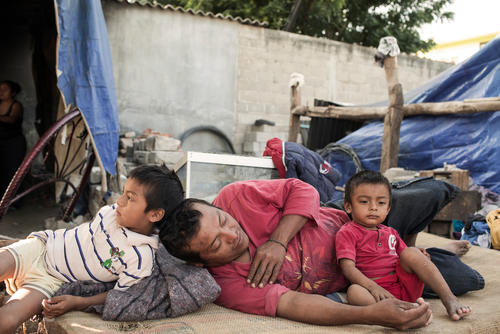The Tierra Caliente, Norte and Centro regions, together with the city of Acapulco, in Guerrero state are some of the most violent places in Mexico.
Territory across the state is fought over by organised criminal gangs. Drug-related crime has left many people living in fear and isolation. Many schools have closed, and the insecurity and surges of violence have had a direct impact on medical care in rural towns.
Many of the local health centres across the state are run by just one nurse who also sleeps at the facility. These nurses have very few resources and must carry the burden of healthcare in their communities.
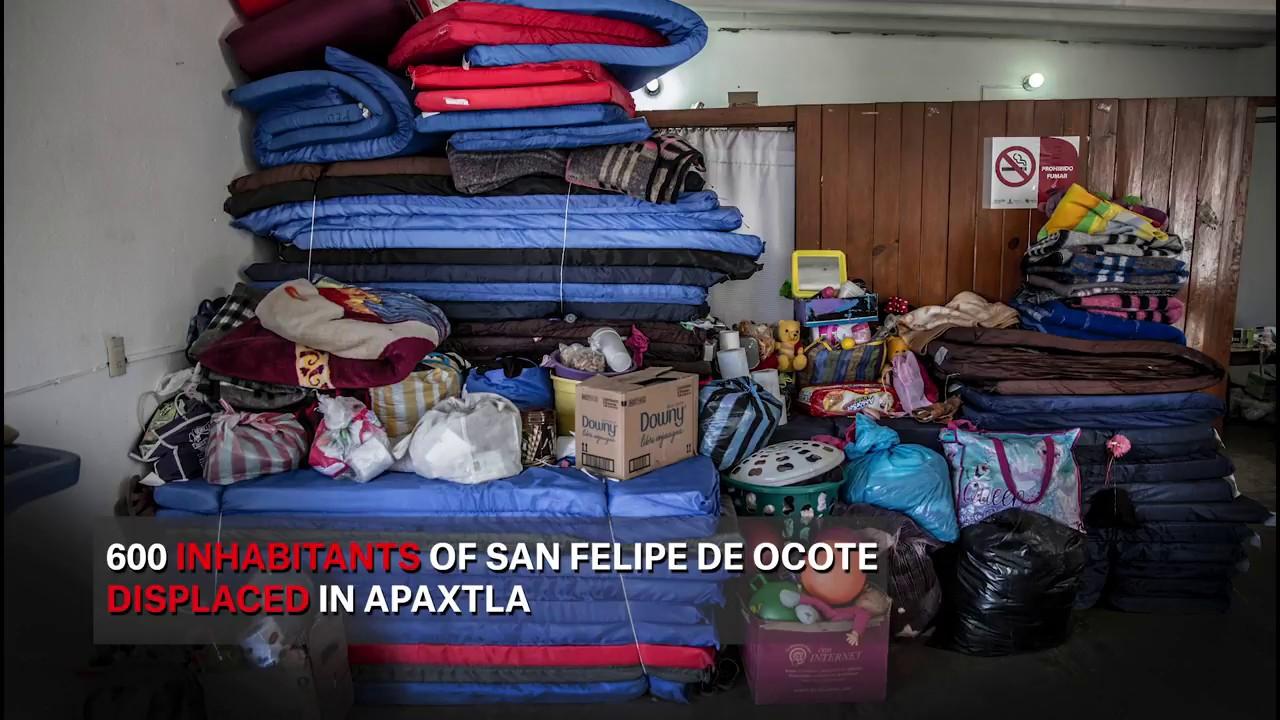
Guerrero: Under siege
MSF offers a lifeline for local people
MSF delivers primary healthcare through mobile clinics in 11 communities across Guerrero state, with teams also in Acapulco city. The mobile clinic teams are made up of doctors, nurses, psychologists and logistics specialists.
“A lot of doctors don’t want to come anymore; the nurses do, thank goodness. We haven’t had a doctor for four years, so the MSF visits are essential of course”, says Bruno, a local resident.
Javier Lopez de la Osa is one of the doctors working in MSF’s mobile clinics in Guerrero state. “A lot of our patients cannot access basic healthcare because of the violence in the region,” he says. “Coupled with problems of ingrained poverty, we see a real lack of follow-up care for pregnant women, which can lead to serious complications and even death in childbirth.”
“There are hardly any services for chronic diseases like diabetes and high blood pressure. Without medical care, conditions that were previously well managed get progressively worse and eventually become acute, severe and in some cases life-threatening,” Javier explains.
“The fabric of society could be torn apart”
Laura Moreno is MSF’s mental health activities manager in Guerrero. “We provide medical and mental care to people affected by the violence in the region,” she explains. “We run individual and group sessions and psychosocial activities, to strengthen patients’ coping mechanisms and help rebuild the social network damaged by violence. This can be challenging as we only visit each community once a month because of the volatile context.
“We carried out 1,270 consultations in 2017, and treat people who have been through very traumatic experiences. Some have had family members killed, and others have family members forced into criminal gangs. People in Guerrero have a tough, fighting spirit, but if the fear and violence persist, the fabric of society could be torn apart. This is why providing mental healthcare is so important here,” Laura concludes.
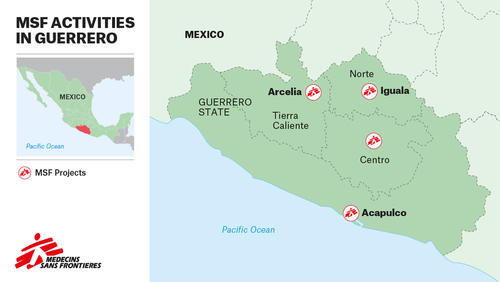
“We see things happen, but we cannot talk about them”
Guerrero’s illegal marijuana and opium trade has been a catalyst for most of the violence across the state, forcing people to emigrate or leaving them cut off for months on end. Juan, a 61-year-old farmer who visited one of MSF’s mobile clinics, described how drug traffickers had threatened the public transport in his town to divert all economic activity to their territory in the north. ”If there’s a medical emergency, now we have to pay up to 1,500 pesos to go in a private van,” he said. The daily wage is between 120 and 200 pesos. “It’s a terrible situation; nobody wants to spend three and a half hours on the road to reach an available public transport. And we cannot go at night because of the risk of being attacked on the roads.”
“We see things happen, but we cannot talk about them,” Juan told MSF staff. “Our house was attacked by armed men a few months ago. My sons aged ten and eleven were also there. They’ve been frightened and traumatised ever since. We can’t leave them alone anymore.”
“We don’t know who’s going to be grabbed next”
Abel is a young man in his 20s. “Every so often we see corpses dumped in public places. It’s traumatic to see because people have been tortured and cut up. One day, when we were playing basketball, a group of armed men arrived at the court. They shot at us, threw us on the ground and took away our mobile phones and money. Then they attacked us with machetes. They took my friend. They cut him up. First they cut off his leg, then his arm. He’d already passed out by the time they cut off his head.”
During a meeting with a local health committee in one of the towns in Guerrero, a dozen women described how insecurity had affected their communities. “There’s fear, there’s mistrust, there’s no happiness anymore,” said one of the members. “I used to go out at night without any hassle. But now we go straight home. I go to bed and I don’t know what will happen.” People suffer from anxiety as a result: “We’re a group of chickens in the coop, we don’t know who’s going to be grabbed next for the pot,” said another woman.
(*) The patient testimonies above were collected during mobile clinics held by MSF in Tetela del Río, Huautla, Puerto Colorado, Las Margaritas, Pueblo Viejo, Buenavista del Aire, Buenavista de Guadalupe, Totoltepec, Santo Tomás, Campo Morado y Coronillas. They were provided under pseudonyms and without cameras at the request of the interviewees.



